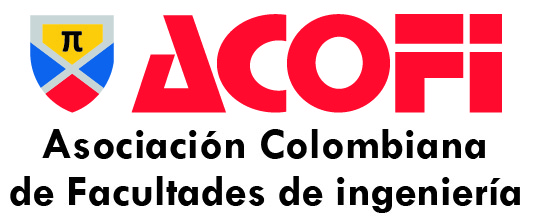Is the goal of bilingualism fulfilled in the colombian undergraduate software programs?
DOI:
https://doi.org/10.26507/rei.v11n22.649Keywords:
Colombia, software industry graduates, bilingualism public policy, EnglishAbstract
This paper evaluates if software students in higher education accomplish the goal established in 2010 by the Colombian Ministry of National Education (MEN for its initials in Spanish). The goal of the Program for Strengthening Skills Development in Foreign Languages (PFDCLE for its initials in Spanish) was that by 2014 the 20% of college graduates should achieved an intermediate level or above in English. According to the PFDCLE the goal would be measure using the universal-exit exam known as SABERPRO. We use the SABERPRO database to assess the fulfillment of the goal in the software undergraduate programs. Tests results are presented at the national level, by the five major cities (Barranquilla, Bogota D.C, Bucaramanga, Cali and Medellin) and by programs. Our results show that the target was not met at national level neither at city level, except Cali. Only two of the eleven programs from the software sector reached the goal: Multimedia Engineering and Informatics Administration.Downloads
References
Alonso, J. C., Casasbuenas, P., Gallo, B. E., & Torres, G. (2011). Bilingüismo en Santiago de Cali: Análisis de los resultados de las Pruebas SABER 11 y SABER PRO (1ra Ed.). Cali: Universidad Icesi.
Alonso, J. C., Gallo, B. E., & Torres, G. (2012). Elementos para la construcción de una política pública de bilingüismo en el Valle del Cauca: un análisis descriptivo a parti del censo ampliado de 2005. Estudios Gerenciales, 28, 59-67.
CCIT y Fedesarrollo. (2013).Informe trimestral TIC. El sector TIC: la nueva locomotora de la economía Colombiana. Recuperado de http://www.evaluamos.com/2006/PDF/201306InformeTIC.pdf
Education First (2014). EF English Profiency Index. Recuperado de http://media.ef.com/__/~/media/centralefcom/epi/downloads/full-reports/v4/ef-epi-2014-spanish.pdf
Fedesarrollo. (2011). Impacto de las tecnologías de la Información y las Comunicaciones (TIC) en el Desarrollo y la Competitividad del país. Recuperado de http://www.fedesarrollo.org.co/wp-content/uploads/2011/08/Impacto-de-las-Tecnolog%C3%ADas-de-la-Informaci%C3%B3n-y-las-Comunicaciones-TIC-Informe-Final-Andesco.pdf
Lee, C. G. (2012). English language and economic growth: Cross-country empirical evidence. Journal of Economic and Social Studies, 2(1), 5-20.
Ministerio de Educación Nacional (2014). Colombia Very well! Programa Nacional de Inglés. Documento de socialización. Recuperado de http://www.colombiaaprende.edu.co/html/micrositios/1752/articles-343287_recurso_1.pdf
Rajprasit, K., Pratoomrat, P., Wang, T., Kulsiri, W., & Hemchua, S. (2014). Use of the English language prior to and during employment: Experiences and needs of Thai novice engineers. Global Journal of Engineering Education, 16(1), 27-33.
Riemer, M. J. (2007). Communication skills for the 21st century engineer. Global J. of Engng. Educ, 11(1) 89-99.
Sánchez, A. (2012). El bilingüismo en los bachilleres colombianos. Documentos de trabajo sobre economía regional. Cartagena: Banco de la República
Sasidharan, P. (2012). A needs-based approach to teaching and learning of English for engineering purposes. Recuperado de www. ethesis.nitrkl.ac.in/4429/1/Priya_S_50713001.pdf
Ufier, A. (s.f) The Impact of English Language Skills on National Income: A Cross-National Comparison. Recuperado de https://www.fdic.gov/bank/analytical/cfr/bios/Ufier_English_wp.pdf
UNCTAD (2011). Informe sobre la economía de la información, Unión Internacional de Telecomunicaciones (2012). “ICT Indicators”
Universidad EAFIT & Infosys Limited. (2013). Brecha de Talento Digital Infosys – Universidad EAFIT. Recuperado de http://www.fiti.gov.co/Images/Recursos/brecha-de-talento-digital-infosys.pdf
Velez-Rendon, G. (2003). English in Colombia: a sociolinguistic profile. World Englishes,
, 185-198.
Zhen, Y. (2013). The Effects of English Proficiency on Earnings of US Foreign-Born Immigrants: Does Gender Matter?. Journal of Finance and Economics, 1(1), 27-41.
Downloads
Published
How to Cite
Issue
Section
License
Total or partial reproduction of the documents published in the journal is authorized only when the source and author are cited.
| Article metrics | |
|---|---|
| Abstract views | |
| Galley vies | |
| PDF Views | |
| HTML views | |
| Other views | |









